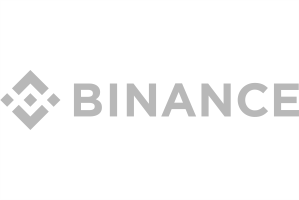Today, many businesses earn money from selling goods and services or spend money on necessary purchases by conducting cash transactions. By acting as intermediaries to transfer funds between people or businesses, some organizations specialize in direct cash flow management. Consequently, they are often classified as money service businesses (MSBs), which require a money transmitter license to operate legally.
There are numerous regulatory standards, both at the state and federal level, that must be met to obtain a license. The following will explain the process of obtaining an MTL license in detail, providing insight into the definition and responsibilities of a money transfer operator. In this way, it will guide you through the licensing procedure and highlight important regulatory rules that apply in different states.
Money Transmitter License
Understanding both federal definitions and state regulations are important requirements for a money transmitter, which is a special type of money services business. In addition, it is necessary to have the appropriate MTL money transmitter license to legally operate as a money transmitter on behalf of others.
Who Needs a Money Transmitter License?
The transfer of money through various channels, such as bank transfers, electronic transfers, or other payment methods, is the main determining factor, although the requirements for this license vary.
Criteria
- Engagement in Transfer Activities: If your business handles the transmission of money or monetary value for others.
- Method of Transfer: Involves using wire transfers, electronic payments, etc.
State-Specific Considerations
Some states may offer exemptions, especially for digital currency operations. It’s crucial to consult state regulations for precise requirements.
Qualifying Conditions
Entities might qualify as money transmitters if they conduct transactions exceeding $1,000 in one day, specifically in activities like:
- Check cashing
- Currency exchange
- Money transfer services
- Issuing or dealing with traveler’s checks and money orders
State-Specific Money Transmitter License Regulations
Direct interaction with state regulators is often required, although the National Mortgage Licensing System (NMLS) is a common application platform in many states. Given the diversity and specificity of regulatory oversight, a more detailed and structured overview of state regulators that issue funds transmitter licenses is provided below.
State Licensing Authorities for Money Transmitter Licenses
Alabama
- Regulator: Alabama Securities Commission
- Application Portal: Alabama Securities Commission
Alaska
- Regulator: Department of Commerce, Community, and Economic Development: Banking & Securities
- Application Portal: NMLS
Arizona
- Regulator: Arizona Department of Financial Institutions
- Application Portal: NMLS
Arkansas
- Regulator: Arkansas Securities Department
- Application Portal: NMLS
California
- Regulator: California Department of Business Oversight
- Application Portal: NMLS
Colorado
- Regulator: Department of Regulatory Agencies
- Application Portal: Department of Regulatory Agencies
Connecticut
- Regulator: Connecticut Department of Banking
- Application Portal: NMLS
Delaware
- Regulator: Office of the State Bank Commissioner
- Application Portal: Office of the State Bank Commissioner
This pattern continues for each state, mentioning the specific regulator and the application portal, whether it’s NMLS or a state-specific platform.
Key Points to Note
- Each state has its own regulatory body, such as the Department of Financial Institutions, Banking Department, or Department of Commerce, among others.
- While many states use the NMLS for application submission, some require direct submission through state-specific portals or departments.
Regulations and requirements for obtaining a US money transmitter license vary significantly from state to state.
Regulatory Challenges
State-Specific Challenges
Minimum Net Worth Requirements
Each state sets its own net worth criteria for money transmitter license USA eligibility. For instance:
- Alabama — requires a minimum net worth of $5,000.
- Arizona — demands a minimum of $100,000 for the primary location plus $50,000 for each additional location. High-volume transmitters may need an additional net worth of up to $500,000.
Security Measures
States require a form of security to protect against malpractices, with minimum amounts varying significantly.
- California — at least $250,000 in surety bonds or securities.
- Colorado — a minimum of $1,000,000, with possible increases based on financial health assessments.
Surety Provider Selection
- Many licensees prefer surety bonds over securities for state–required security.
- It’s essential to select a provider familiar with the money transmitter sector due to its inherent risks.
Federal Compliance Requirements
Registration with FinCEN
- All money transmitters must register with the Financial Crimes Enforcement Network (FinCEN) to comply with federal laws.
Registration involves a straightforward online application, renewable every two years.
Essential Documentation and Requirements
Documentation
Comprehensive Business Plan
- Outline your business’s mission, operational strategies, customer engagement plans, and funding strategies.
- Business location, purpose, product/service offerings, and financial projections.
Financial Statements
- Submit detailed financial records for yourself, the business, and any significant shareholders or directors.
- Documentation on assets, liabilities, net worth, and cash flow.
- Ensure accuracy and organization in these documents.
Background Checks
Undergo a background check covering criminal and civil records to establish trustworthiness in handling client funds.
Regulatory Compliance
Anti-Money Laundering (AML) Program
Implement an AML program compliant with Financial Crimes Enforcement Network (FinCEN) guidelines, including:
- Written policies to prevent money laundering and terrorism financing.
- Controls and procedures for AML law compliance.
- Customer identity verification procedures.
- Reporting and record-keeping systems.
- An appointed official to oversee AML compliance.
- Periodically update your AML program to align with current laws.
Procedure and Fees for Obtaining a Money Transmitter License
Acquiring a money transmitter license involves specific examination and investigation steps, as well as associated costs, which vary by state.
Examination and Investigation Process
Initial Investigation
The regulatory authority may conduct an investigation to assess the financial integrity, industry experience, and character of the applicant after the application is submitted, as well as to verify the key officers and directors of the company.
Annual Examination
License holders can expect a yearly review by the state, examining the business‘s operations, financial health, and the licensee‘s character.
Associated Costs
Application Fee
This fee varies by state and can range from a few hundred to several thousand dollars. It’s crucial to consult with the state‘s licensing authority for accurate figures.
Annual License Fee
To keep the license active, money transmitters must pay a renewal fee annually, typically between $250 and $1,000.
Investigation Fee
States requiring an initial investigation or annual examination might charge a fee, generally from $50 to $1,000.
State-Specific Money Transmitter License Overview
There are several requirements and fees that must be met in advance to obtain an MTL license. For companies operating within its jurisdiction, each state has its own set of rules, application procedures, and financial conditions.
Alabama: Fee: $250, Net Worth: $5,000, Surety Bond: $10,000
Alaska: Fee: $500, Net Worth: $25,000, Surety Bond: $25,000
Arizona: Fee: $1,500, Net Worth: $100,000, Surety Bond: $25,000
Arkansas: Fee: $1,500, Net Worth: $250,000, Surety Bond: $50,000
California: Fee: $5,000, Net Worth: Varies, Surety Bond: $250,000
District of Columbia: Fee: $500, Net Worth: $100,000, Surety Bond: $50,000
Florida: Fee: $375, Net Worth: $100,000, Surety Bond: $50,000
Georgia: Fee: $2,000, Net Worth: Varies, Surety Bond: $50,000
Hawaii: Fee: $2,000, Net Worth: $1,000, Surety Bond: $1,000
Idaho: Fee: $100, Net Worth: $50,000, Surety Bond: $10,000
Illinois: Fee: $100, Net Worth: $35,000, Surety Bond: $100,000
Kentucky: Fee: $500, Net Worth: $500,000, Surety Bond: $500,000
Louisiana: Fee: $3,000, Net Worth: $100,000, Surety Bond: $25,000
Maine: Fee: $500, Net Worth: $100,000, Surety Bond: $100,000
Maryland: Fee: $1,000, Net Worth: $150,000, Surety Bond: $150,000
Massachusetts: Fee: Varies, Net Worth: N/A, Surety Bond: $50,000
Michigan: Fee: $600, Net Worth: $100,000, Surety Bond: $500,000
Minnesota: Fee: $4,000, Net Worth: $25,000, Surety Bond: $25,000
Mississippi: Fee: $50, Net Worth: $25,000, Surety Bond: $25,000
Missouri: Fee: $50, Net Worth: N/A, Surety Bond: $100,000
Montana: No licensing requirements
Texas: Fee: $2,500, Net Worth: $100,000, Surety Bond: $300,000
New York: Fee: $3,000, Net Worth: Varies, Surety Bond: $500,000
For more information about other states not mentioned above, please contact our Prifinance specialists.
FAQ
Do I need a money transmitter license for my business?
If your business involves receiving money to transmit to another location through any means such as wire, electronic transfer, or payment instruments, you likely need a money transmitter license US. This requirement varies by state, and certain businesses, especially in the digital currency space, might be exempt.
What transactions classify a business as a money transmitter?
A business is typically classified as a money transmitter if it engages in activities like check cashing, currency dealing/exchanging, money transfer services, issuing traveler’s checks, or money orders, particularly if transactions exceed $1,000 daily.
What are the key steps to obtaining a money transmitter license?
If you want to obtain a money transmitter license USA, you need to go through the procedure in accordance with the state requirements. It often requires submitting a detailed application, passing an inspection, providing financial statements and a business plan, obtaining a surety, and paying the appropriate fees.
How much does a money transfer license cost?
The application fee, annual renewal fee, and possible investigation or examination fees are all potential factors that are included in the cost of an MTL license. Application fees can range from a few hundred to several thousand dollars, annual fees are generally lower, and investigation/examination fees can vary.








